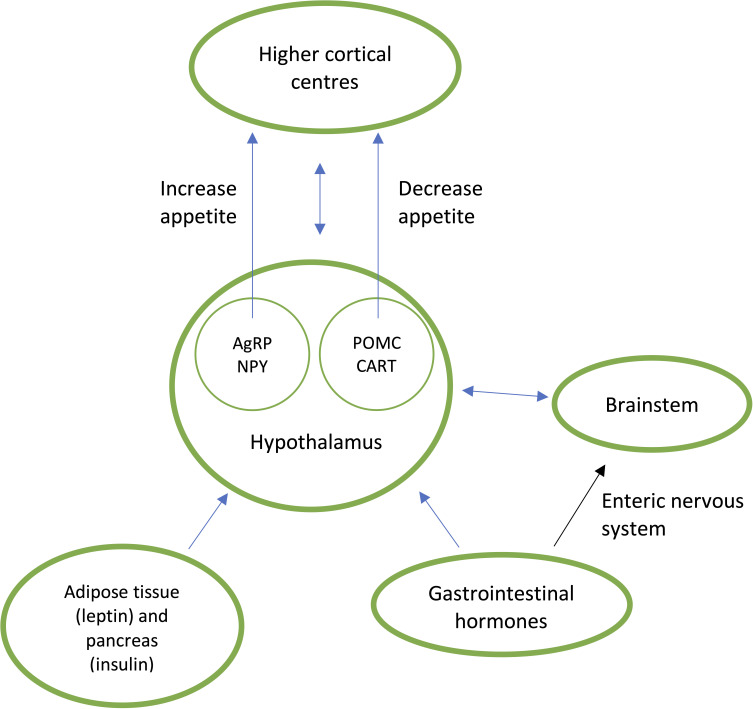Figure 1.
Neuroendocrine regulation of appetite. Gastrointestinal and peripheral hormones communicate directly (via the blood brain barrier) and indirectly (enteric nervous system) to the subconscious hypothalamus and brainstem to either stimulate appetite via agouti-related peptide (AgRP) and neuropeptide Y (NYP) or suppress appetite via pro-opiomelanocortin (POMC) and cocaine and amphetamine regulated transcript (CART). These signals are conveyed to higher conscious brain centres which regulate eating behaviour.8

